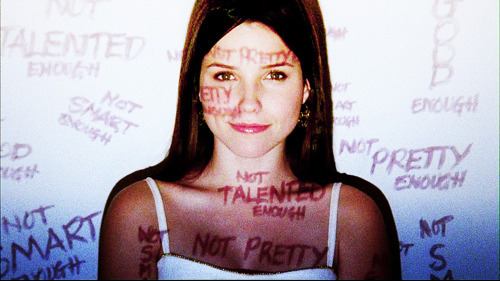
by Arpita Mehta
Last week, during my women in health lecture, my professor said we would be playing a game in class. We were asked to sit down and she went around to post labels on the back of our shirts, asking us not to look at what we were assigned. The activity then required us to walk around the classroom and treat the other classmates (all women) based on what their label read. Sounds like a high school exercise right? Well it was for sure, but it was an eye opener for me.
As I walked around the room, I heard girls asking the labeled teen mom “Are you stupid, did you think twice?” or the labeled single business executive, “have you considered Match.com?” Of course, this was just for the sake of the exercise and the comments were exaggerated to fit their stereotypes, but the lesson I learned was far more compelling.
As women, we complain that we are not treated as equal, that we are objectified and undermined. We complain that we are not given the same opportunities as men and are not taken as seriously. We complain and we judge.
However, as women we are our own worst enemies. We are the “Mean Girls.”
We created the stereotypes and feed them every single day. We walk on the streets and whisper to our friends the same comments I heard in my class the day we engaged in the group exercise. We may not approach the college dropout that works at Starbucks to ask what her aspirations for the future are, because in our mind we have judged her before she even takes our order.
We live in a society where it is considered a taboo to get a nose job or a tummy, tuck but in reality do we really have the right to sneer at someone who makes that decision? Why is it so hard for us to accept the choices other women make? Those decisions should not affect the way we treat our sisters, friends, roommates and colleagues.
We judge the stay-at-home-mom for being dependent and ambition less, but we also judge the single businesswoman for having too much ambition and being selfish. In reality, we cannot escape judgment from other women no matter what we decide to do.
Now more than ever, we should focus on empowering other women. Not everyone can be Michelle Obama or Beyoncé, but we can strive to be better versions of ourselves. We can strive to support other women, to support their decisions to look beyond the superficial. We are fighting the same fight – we are all trying to prove ourselves in today’s society. We all want to get places, achieve goals, be known and be loved.
The next time you are walking down the street or at work, try to look past your female counterparts’ decisions, professions and style. Look at them as women who have fought many of the same battles as you. Challenge yourself to be judgment free for a day, a week or a month. Challenge yourself to empower women, to empower you.




